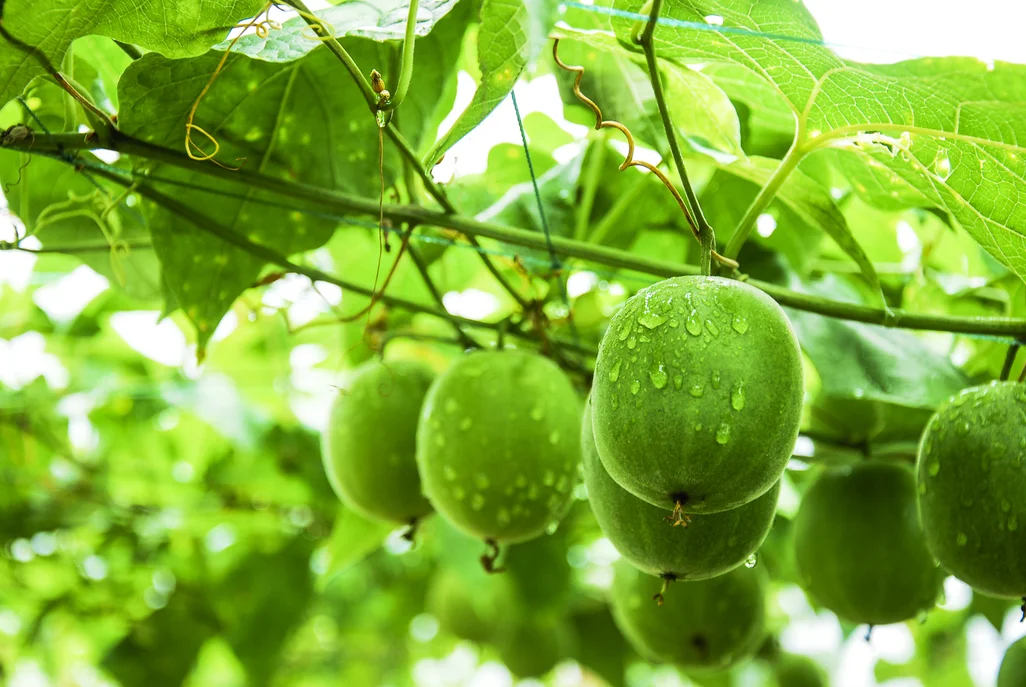Monk fruit, known as Siraitia grosvenorii or Luo Han Guo, is a small, round fruit native to Southern China and Northern Thailand. Celebrated for its intense sweetness—nearly 150 to 250 times sweeter than table sugar—this remarkable fruit has been used as a natural sweetener and medicinal herb in traditional Chinese medicine for centuries.
In recent years, monk fruit has captured the attention of health-conscious consumers worldwide. This is mainly because it offers a calorie-free, natural alternative to sugar and artificial sweeteners.
In this article, we’ll dive into the world of monk fruit—exploring its health benefits and how it compares to sugar as a sweetener.



